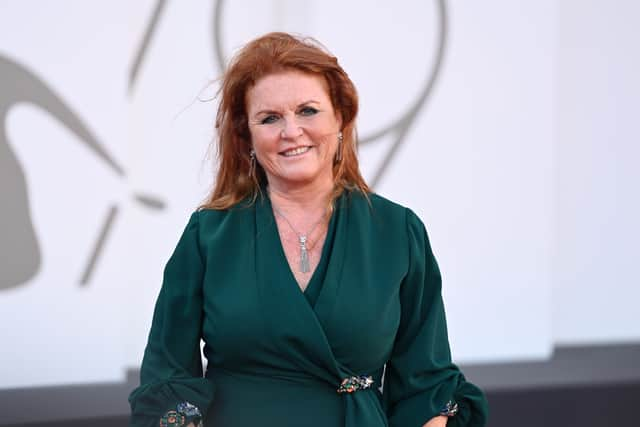Duchess of York: Fergie calls reconstructed breast "Derek" as she opens up about masectomy
and live on Freeview channel 276
The Duchess of York has opened up about her reconstruction following breast cancer treatment.
On her podcast, Tea Talks, the Duchess, 63, revealed that she has given her reconstructed breast a name, after she underwent a single masectomy operation in June.
Advertisement
Hide AdAdvertisement
Hide AdSpeaking to co-host and friend Sarah Thomson, she said: "On my left, he’s called Derek… and he’s very important because he saved my life.


"It just made me laugh that I have now a friend who’s with me all the time who’s protecting with his shield of armour.
"[I'm] balancing the fact that I’ve got a new model at the moment - I’ve gotten new wheels and a new engine and I’ll be taking the car for a bit of a run soon.”
The Duchess later remarked that her reconstructed breast is "perkier" than the other, which she has named Eric.
Advertisement
Hide AdAdvertisement
Hide AdHaving been through the operation at King Edward VII's Hospital in London, she is now urging women to get screened for breast cancer on a regular basis.
Naming a scar or tumour is certainly not uncommon, with some using it as a coping mechanism. When playwright Dennis Potter was diagnosed with terminal cancer, he named his tumour "Rupert" - after news mogul Rupert Murdoch.
Specialist cancer information nurse at Cancer Research UK, Caroline Geraghty, said: "People react differently to a cancer diagnosis and find their own unique ways to cope. Some people find naming their tumour or scar a positive way to manage their mental health when living with cancer.
"If you have been diagnosed with cancer, it is likely that you will experience a range of emotions. There are lots of different types of support out there for people living with cancer, and you should talk to your GP or cancer team to see what is right for you."
Comment Guidelines
National World encourages reader discussion on our stories. User feedback, insights and back-and-forth exchanges add a rich layer of context to reporting. Please review our Community Guidelines before commenting.
